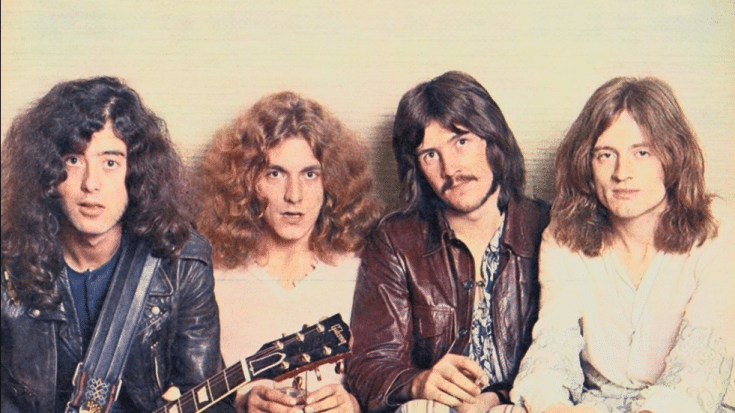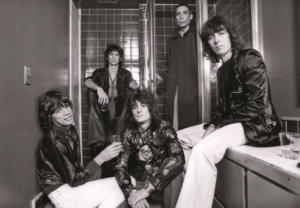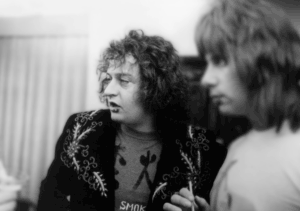10 Most Disappointing Follow-Up Rock Albums

via Split The Music / YouTube
In the crazy world of rock music, there’s nothing like the excitement of a new album from a beloved band. Fans hope for another amazing album that will make the band even more famous. But sometimes, the band can’t make a new album as good as their last one and fans feel disappointed.
Now, let’s look at ten times when even the best rock bands had trouble making a great next album.
10. Mötley Crüe – Theatre of Pain (1985)
After the roaring success of their previous album “Shout at the Devil,” Mötley Crüe seemed poised for even greater heights with “Theatre of Pain.” However, the album fell flat, disappointing both fans and critics. Instead of building upon the hard-hitting and aggressive sound that had defined their earlier work, the band took a different approach, opting for a softer, more glam metal sound.
While there were a few standout tracks on the album, such as the power ballad “Home Sweet Home,” the overall album lacked the edge and energy that had made Mötley Crüe so popular. Many songs felt like filler, lacking depth and memorable hooks. Additionally, the album suffered from a lack of direction, with the band seemingly unsure of their artistic vision. The departure from their signature sound alienated some fans and tarnished the band’s momentum.
9. Fleetwood Mac – Tusk (1979)
Following the monumental success of their classic album “Rumours,” Fleetwood Mac faced immense pressure to deliver another blockbuster with “Tusk.” However, the album failed to recapture the magic and cohesion that had made its predecessor a timeless masterpiece. Rather than simply replicating the winning formula of “Rumours,” the band opted for a more experimental and adventurous approach.
The result was a sprawling double album that combined elements of rock, pop, and even elements of punk and new wave. While this experimentation was lauded by some critics, it ultimately confused and alienated many fans. The scattered nature of the album and the lack of a clear musical direction meant that it did not resonate with audiences in the same way as their previous work. Despite the album selling millions of copies, it was deemed a disappointment, unable to replicate the perfection of “Rumours” and leaving fans yearning for the band’s earlier sound.
8. Aerosmith – Draw The Line (1977)
Aerosmith had been riding a wave of success with their previous albums “Toys In The Attic” and “Rocks,” but they hit a roadblock with “Draw The Line.” The band’s well-documented struggles with substance abuse began to take a toll on their creative output and overall cohesion. Internal conflicts and personal issues led to tensions among the band members, resulting in a lack of focus and direction during the album’s production.
As a result, “Draw The Line” failed to live up to the high expectations set by their previous work. While it did have some standout tracks like the title track and “Kings and Queens,” the album lacked the consistency and cohesiveness that had made their earlier albums so powerful. Despite its shortcomings, Aerosmith would go on to stage a successful comeback in the 1980s, but “Draw The Line” remains a weaker entry in their discography.
7. Dire Straits – On Every Street (1991)
Dire Straits faced a daunting task of following up the massive success of their landmark album “Brothers in Arms” with “On Every Street.” Unfortunately, the band did not manage to recapture the same magic. After a lengthy hiatus, the album was highly anticipated by fans and critics alike. However, the overall reception was mixed, with many feeling that it fell short of its predecessor.
“On Every Street” lacked the same memorable hooks and emotional resonance that had made “Brothers in Arms” such a beloved album. The songwriting seemed less inspired, and the band’s trademark guitar work from Mark Knopfler often took a backseat, resulting in a less dynamic and engaging sound. While there were still some solid tracks on the album, including the hit single “Calling Elvis,” the overall package failed to live up to the lofty expectations set by their previous record, leaving fans disappointed and signaling a decline in the band’s popularity.
6. Queen – A Day At The Races (1976)
Following the massive success of “A Night at the Opera,” Queen faced high expectations with their next album, “A Day at the Races.” Unfortunately, the album fell short of the creative and artistic heights they had reached with its predecessor. While “A Day at the Races” had some memorable tracks like “Somebody to Love” and “Tie Your Mother Down,” it lacked the same level of innovation and creativity that had made “A Night at the Opera” a masterpiece.
The album seemed to tread familiar ground, offering a collection of songs that felt like a rehash of their past work without bringing anything new to the table. While it still showcased the band’s trademark sound and Freddie Mercury’s powerful vocals, there was a sense of repetition and predictability that left fans hoping for more experimentation and growth.
5. Yes – Tales From Topographic Oceans (1973)
With “Tales From Topographic Oceans,” Yes aimed for something grand and ambitious. However, the album’s intricate concept and sprawling soundscapes left many fans puzzled and disappointed. Clocking in at around 80 minutes, the album consisted of four lengthy compositions, each taking up one side of the vinyl record. While the band’s instrumental prowess was undeniable, the complex and convoluted nature of the songs made it challenging for listeners to connect and engage with the music.
Moreover, tensions were rising within the band during the album’s creation, leading to disagreements and creative clashes. This further affected the cohesion and overall quality of the album. While some fans appreciated the band’s artistic vision and the album eventually developed a cult following, “Tales From Topographic Oceans” was seen as a misstep in Yes’ discography, overshadowing their previous successes.
4. Led Zeppelin – Led Zeppelin III (1970)
Following the massive success of “Led Zeppelin II,” Led Zeppelin took a bold stylistic departure with “Led Zeppelin III.” The album showcased a more acoustic and folk-inspired sound, deviating from the hard-hitting blues and heavy rock that had defined their previous work. While the album had its moments of brilliance, including the hits “Immigrant Song” and “Since I’ve Been Loving You,” it failed to meet the high expectations set by its predecessor.
The shift in musical direction confused some fans and critics who were expecting a continuation of the band’s signature sound. The softer and more introspective nature of the album didn’t resonate with everyone, and some felt that it lacked the energy and intensity that had made Led Zeppelin such a powerhouse. However, over time, “Led Zeppelin III” has been reevaluated and is now recognized as a strong and influential entry in the band’s catalog.
3. Peter Frampton – I’m In You (1977)
Peter Frampton faced significant challenges following up the monumental success of his live album, “Frampton Comes Alive!” With “I’m In You,” he took a shift towards a more commercial sound, aiming to further capitalize on his newfound fame. However, the album fell short of fans’ expectations, who were hoping for a continuation of the raw energy and guitar-driven rock of his live performances.
“I’m In You” embraced a slicker and more polished production, featuring more pop-oriented tracks. While it did produce a hit single with the title track, the album failed to capture the same level of excitement and authenticity that had made “Frampton Comes Alive!” resonate with audiences. The change in style alienated some of Frampton’s rock fan base and marked a decline in his popularity.
2. Van Halen – Diver Down (1982)
With “Diver Down,” Van Halen delivered an album that felt rushed and lacking a clear artistic direction. Coming off the massive success of “Fair Warning” in 1981, the band faced immense pressure to continue their winning streak. However, “Diver Down” leaned heavily towards cover songs, with only a few original tracks included. While they put their unique spin on the covers, some fans felt that the reliance on outside material was a letdown.
Moreover, the album lacked the cohesion and consistency that had characterized their earlier work. With a mixture of covers, instrumentals, and a few original songs, “Diver Down” felt disjointed and lacked a unifying theme. Although it was still commercially successful, the album was seen as a step backward creatively and left fans wanting more from the band.
1. The Beach Boys – Smiley Smile (1967)
“The Beach Boys faced significant challenges following their magnum opus, “Pet Sounds,” with “Smiley Smile.” Hindered by internal conflicts, pressure to deliver another revolutionary album, and the abandonment of the highly anticipated “Smile” project, “Smiley Smile” fell short of the high expectations set by its predecessor.
Instead of the ambitious and intricate soundscapes of “Pet Sounds,” “Smiley Smile” featured a stripped-down and eccentric approach. The album incorporated unconventional recording techniques and whimsical songs, which proved polarizing for fans and critics. Some appreciated the experimental nature, while others found it puzzling and lacking the same depth and impact as “Pet Sounds.”
While “Smiley Smile” has gained a cult following over the years and is recognized for its influence on later alternative and lo-fi music, at the time of its release, it was seen as a disappointment and marked a difficult period in the band’s history.


















